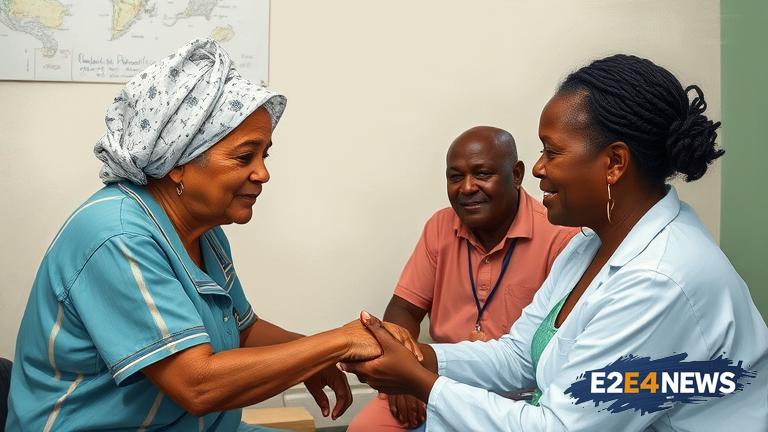In a significant effort to improve the quality of life for individuals with serious illnesses, the Pan American Health Organization (PAHO), World Health Organization (WHO), European Union, and Ministry of Health and Wellness in Belize have joined forces to conduct comprehensive training workshops across the country. The primary objective of these workshops is to enhance the capacity of healthcare professionals in providing palliative and end-of-life care, as well as psychosocial support to patients and their families. This collaborative initiative aims to address the growing need for specialized care in Belize, ensuring that patients receive compassionate and holistic support during their most vulnerable moments. The training workshops will cover a range of topics, including pain management, symptom control, and emotional support, equipping healthcare providers with the necessary skills and knowledge to deliver high-quality care. Furthermore, the workshops will emphasize the importance of psychosocial support, recognizing that patients’ emotional and social well-being are essential components of their overall care. By strengthening the healthcare system’s capacity to provide palliative care, the partnership seeks to improve patient outcomes, reduce suffering, and enhance the quality of life for individuals with serious illnesses. The initiative also underscores the commitment of the Belizean government to prioritizing the health and well-being of its citizens, particularly those in need of specialized care. The European Union’s support for this project demonstrates its dedication to promoting global health and well-being, while PAHO and WHO bring their expertise and resources to the table, ensuring that the training workshops are evidence-based and effective. As the workshops are conducted across Belize, healthcare professionals from various regions will have the opportunity to participate, ensuring that the benefits of this initiative are felt nationwide. The training will also focus on building a sustainable and resilient healthcare system, capable of responding to the evolving needs of the population. In addition, the partnership will facilitate the exchange of best practices and expertise among healthcare providers, promoting a culture of collaboration and continuous improvement. The impact of this initiative is expected to be significant, with potential benefits including improved patient satisfaction, reduced hospitalization rates, and enhanced quality of life for patients and their families. Moreover, the project will contribute to the development of a more comprehensive and integrated healthcare system in Belize, one that prioritizes the needs of vulnerable populations and addresses the social determinants of health. The collaboration between PAHO, WHO, the European Union, and the Ministry of Health and Wellness serves as a model for international cooperation in health, demonstrating the power of collective action in addressing complex health challenges. As the training workshops progress, it is anticipated that they will have a lasting impact on the healthcare landscape in Belize, shaping the country’s approach to palliative care and psychosocial support for years to come. The initiative also highlights the importance of investing in healthcare infrastructure and human resources, recognizing that a well-trained and supported healthcare workforce is essential for delivering high-quality care. In conclusion, the partnership between PAHO, WHO, the European Union, and the Ministry of Health and Wellness in Belize represents a significant step forward in enhancing palliative care and psychosocial support in the country, with far-reaching implications for patients, families, and the healthcare system as a whole. The project’s focus on building capacity, promoting collaboration, and prioritizing patient-centered care will undoubtedly contribute to improved health outcomes and a better quality of life for the people of Belize. With its emphasis on sustainability, resilience, and continuous improvement, this initiative has the potential to leave a lasting legacy in the healthcare sector, inspiring future generations of healthcare professionals and policymakers to prioritize the needs of vulnerable populations.
